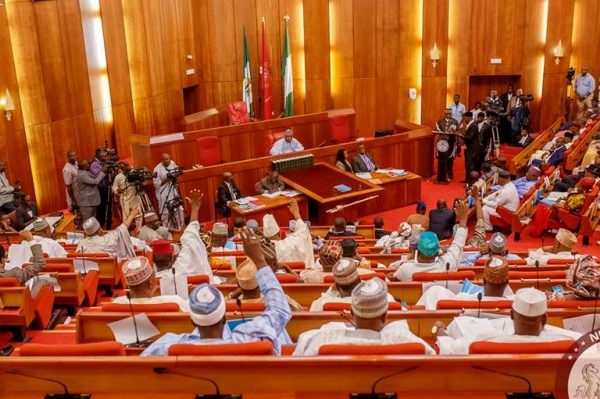A bill to protect persons with mental health and substance abuse problems passed the second reading at the senate on Thursday.
This followed the presentation of the bill by the sponsor, Sen. Ahmadu Abubakar (APC-Adamawa) at plenary.
The bill is entitled, “A Bill for an Act to Protect Persons with Mental Health Needs and Establishment of National Commission for Mental Health and Substance Abuse Services for Effective Management of Mental Health in Nigeria and for other Related Matters”.
Presenting the bill, Abubakar said the bill, which passed first reading on Jan. 23, would provide direction for a coherent response to mental health and substance abuse victims.
He said the bill would protect the rights and freedom of persons with mental health and substance abuse problems as well as ensure better quality of life and better service delivery.
The lawmaker said further that the bill when passed and signed into law would provide a framework for legalisation to take care of issues around mental health.
He lamented that records had it that mental health problems accounted for “the sixth burden worldwide”.
Abubukar noted that in spite of the large number of persons suffering the problem in Nigeria, reports had it that there were only “250 psychiatrists in the country”.
He said there were myths around mental health problems, saying “there are spiritual reasons for the neglect and discrimination against victims. As such victims are not often taken to hospital.
“They are stigmatised, abandoned, locked or beaten up. Painfully, World Health Organisation’s assessment shows that there is a serious concern for mental health in Nigeria.
“Meanwhile, the existing mental health policy in Nigeria was in 1991 and since then, no formal assessment has been conducted on its implementation.
“Apart from the existing policy and the 1914 Lunacy Act, there is no legal framework on the problem and it is worrisome.
“There is also no emergency preparedness plan. In fact, several countries in Africa like South Africa, Kenya and Ghana are better resourced when it comes to mental health services”.
The lawmaker said the passage of the bill would ensure the establishment of a mental health commission to provide regular monitoring of mental health and substance abuse.
Contributing, Sen. Shehu Sani, said the bill was an intervention on the state of mental health in Nigeria.
He said there had not been any parliamentary intervention on the matter since 1999, saying there was a need to make the issue compliant with 21st century practices.
“The bill is to establish a commission that will regulate and coordinate the delivery system.
“In many cities, men and women are victims of mental health, sometimes constituting nuisance.
“Government has not come up with policies that will coordinate and integrate them into the system and it is unfortunate.
“When I was in prison in my days of activism, people with mental health problem were kept as criminals. They are also discriminated against by families.
“So, a bill like this will give them hope and a second chance,” he said.
In his remarks, the Deputy President of the Senate, Mr Ike Ekweremadu, commended the sponsor of the bill.
He said that when passed and signed into law, “the commission should be able to work with psychiatrist agencies to tackle the problem.
“I believe that every person whether with mental health or not, is the responsibility of government.
“I hope this will make government to be conscious of its responsibility to the people.” (NAN)



 Premier League
Premier League